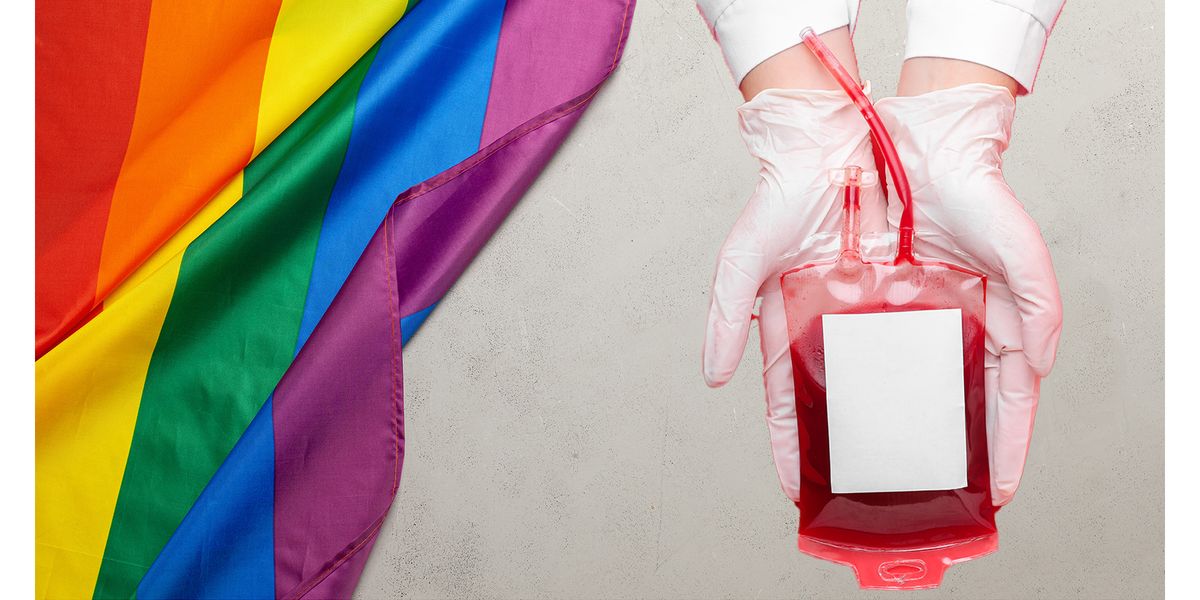France: Blood donation ban for homosexual and bisexual men lifted

France has taken a major step toward destigmatizing homosexual men. As of March 16, 2022, everyone in this country will be allowed to donate blood, regardless of their sexual orientation. Because: the ban on blood donation for homosexual and bisexual men will be lifted. Since 2013, Health Minister Olivier Véran has been fighting to ensure that a person's sexual orientation should not be the deciding factor in whether or not he (or she) is allowed to donate blood. The latest decision on this issue caused joy in the community - also outside France.
Blood donation questionnaire is changed
In a Twitter post, politician Olivier Véran writes that an injustice has finally been ended that had long been unjustifiable. With the lifting of the said ban on blood donation for homosexuals and bisexuals, it is now possible for anyone to donate blood directly and without a celibate phase.
Since 2016, homosexual and bisexual men in France have only been allowed to donate blood if they have not had sex with another man for four months beforehand. The questionnaires also had to answer a question about the donor's sexual orientation. In the updated version, precisely this detail is to be omitted in the future. Instead, other points will be included in the questionnaire.
As of the above-mentioned cut-off date, questions regarding the taking of preventive medication must be answered in the case of an HIV risk contact. If a taking took place, because possibly a transmission could have taken place, the person concerned is blocked for the next four months. However, this does not only apply to homosexual and bisexual men! Every potential donor who has had an HIV risk contact - regardless of his sexuality - is blocked for the corresponding period.
The compilation of the catalog is based on sound scientific data and was determined after thorough consultation.
How are blood donations by gay and bisexual men regulated in other countries?
In all likelihood, there will be some changes in Greece this year. In this country, too, the ban (and, accordingly, discrimination) is to be lifted.
However, Greece and France are only two of several examples that show how differently this issue can be dealt with.
Each country regulates here individually. In most regions, blood donation for gays and bisexuals is only permitted if the donors enter a celibate phase before the respective date. The intervals that must be observed in each case vary here.
The country of Denmark has a kind of "special position" in this context. Here, it is stipulated that homosexual or bisexual men may donate blood without a waiting period if they are in a monogamous partnership.
Why are blood donation bans discriminatory?
This is a question that many people who are not in the community and have not yet studied the issue in depth may be concerned about. The problem that arises from prohibitions of this kind is the "tacit" accusation that it is primarily homosexuals and bisexuals who are at high risk of contracting HIV.
If you think back a little, you will certainly feel transported to the time of the 1970s and 1980s, when AIDS was then referred to as a "gay disease". However, a look at "real life" shows that it is definitely a bit short-sighted to assume only in the case of gay or bisexual men that they would have an increased risk of becoming infected with HIV. A classic example: a heterosexual man who enjoys one ONS after another on the weekend has a higher risk than a gay man who has been living in a monogamous partnership for years. Accordingly, it would not only be discriminatory, but also very naive to conclude from sexual orientation the HIV risk of a person.